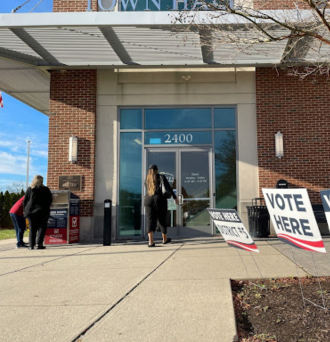
Overlooked in Climate Politics: January 2025
Welcome to Overlooked in Climate Politics, the Environmental Voter Project’s newsletter with a quick rundown of 3 under-reported stories in climate politics. Please forward this to your friends — they can subscribe here! In this edition, we spotlight three under-the-radar 2025 elections that could have a significant impact on climate policy-making. Of course, this fall’s prominent gubernatorial elections in New Jersey and Virginia are also crucially important to the climate movement, but the following elections aren’t getting as much attention.
Who will be the next Mayor of New York City?
With 8.3 million people, New York City has a larger population than 38 entire states. NYC is also the financial capital of the world and a global commerce and transportation hub, so when City Hall makes climate policy, it impacts the climate crisis in a way that few other global cities can. On June 24, New York City will hold a ranked-choice-voting battle royale for the Democratic mayoral primary with candidates likely including incumbent Mayor Eric Adams, fmr. Governor Andrew Cuomo, City Comptroller Brad Lander, fmr. City Comptroller Scott Stringer, State Senator Jessica Ramos, State Senator Zellnor Myrie, State Assembly Member Zohran Mamdani, fmr. State Assembly Member Michael Blake, Attorney Jim Walden, and fmr. hedge fund executive Whitney Tilson. This will be a big, unpredictable election with real climate policy ramifications.
And don’t forget about Boston.
Incumbent Boston Mayor Michelle Wu has drawn a serious challenger in Josh Kraft, a philanthropist and the son of billionaire Robert Kraft who owns the New England Patriots. Boston holds a non-partisan September preliminary election, after which the top two vote-getters advance to a November general election. Mayor Wu has spent much of her first term working to make Boston a “Green New Deal City,” so it will be interesting to see if climate and environmental issues feature as prominently as they did in the city’s 2021 mayoral election.
At last, we get a Georgia Public Service Commission election!
Some candidates have been running for Georgia’s Public Service Commission (PSC) — the body that regulates utilities in the state — for almost four years…yes, that’s right…almost four years. The original 2022 election for two PSC seats was delayed pending a Voting Rights Act lawsuit claiming that at-large PSC voting procedures impermissibly dilute Black voting power. Finally, though, the courts have settled all relevant cases, and voters will decide who fills these two important climate-policy-making seats in a June 17th statewide special primary and a November 4th statewide general election.
How You Can Take Action
Join the Environmental Voter Project on Zoom to mobilize low propensity environmental voters for the upcoming special elections in Louisiana State Senate Districts 14 and 23! Sign up for our phonebanks using scripts proven to boost turnout: February 4th at 12pm ET / 9am PT, February 5th at 8pm ET / 5pm PT, February 6th at 7pm ET / 4pm PT, and February 11th at 12pm ET / 9am PT. Training provided — please join us!
If you'd like to receive the Overlooked in Climate Politics Newsletter and other updates in your inbox going forward, please subscribe here.
